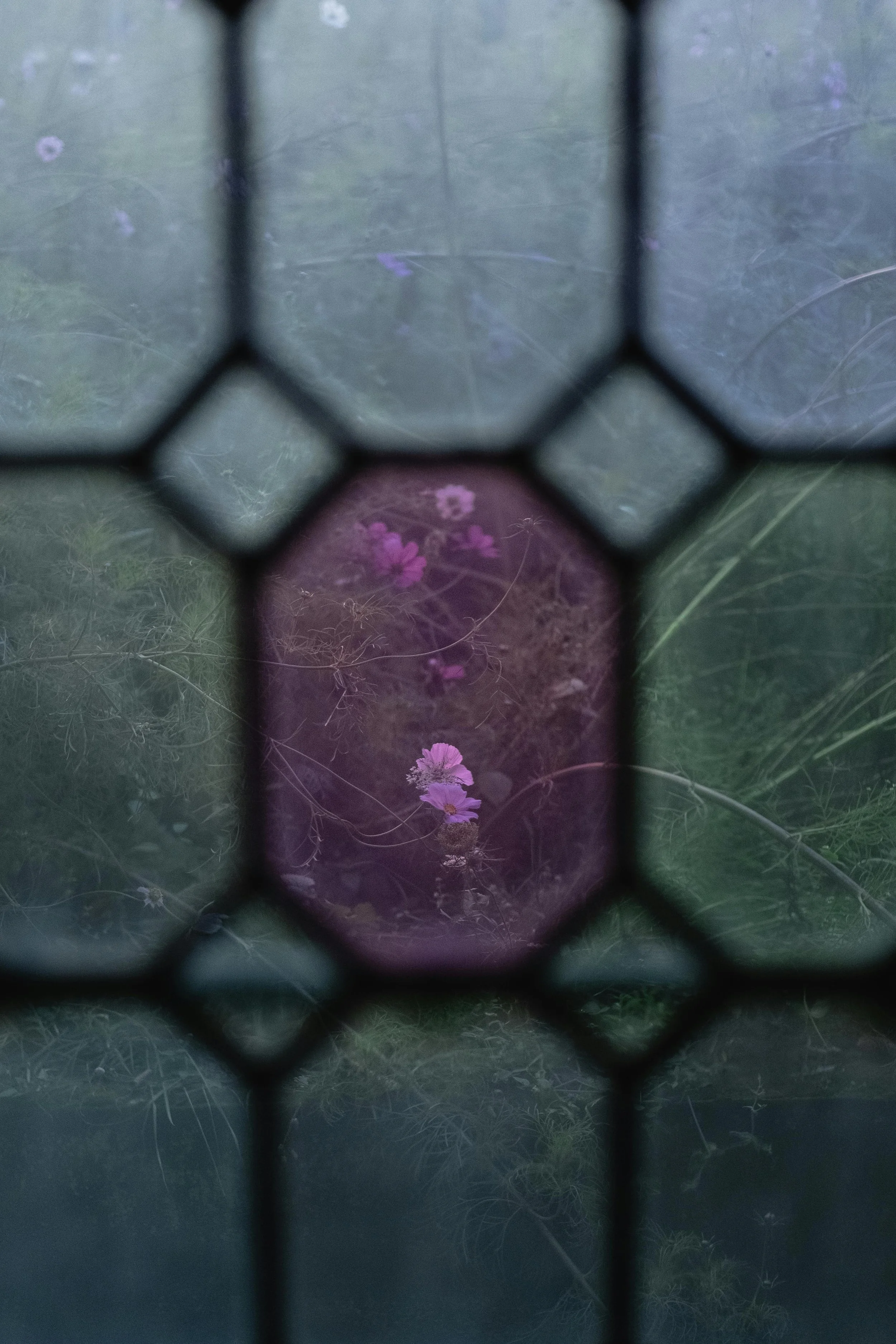I Have Learned To Love This Stained-Glass World: A Craft Essay on E. Peregrine’s Poem ‘Transience’
by E. Peregrine
I am often charged with interpreting sacred music from Christian traditions, though these liturgies and symbols are mine through cultural inheritance alone. To realize these works honestly requires one to meet them in their homeland of true—if bespoke—belief. Navigating this fraught, tender confluence of holy image and personal understanding has become a cornerstone of my artistic practice. There are transcendent experiences that simply demand to be understood in theological terms. For me, my gendered personhood is inherently sacred. It is a constant source of spiritual connection, of wonder. What can be a more direct experience of the Divine than living a paradox of change and continuity?
Time is always being marked at a thousand different speeds around us. From the slow passage of landscapes to the instantaneous flesh-flash of a paper cut, our perception of movement from “now” to “now” to “now” is entirely subjective. On a long train journey several years ago, I looked out to a long stretch of water perfectly mirroring the open sky above. The grasses at the water’s edge blurred at high speed while wispy clouds reflected below and beyond, appearing paradoxically, infinitely, still. In musical language, we might describe this as “slow harmonic motion:” long, structural chords persisting as they are ornamented by rhythmically enlivened voices. It’s not that forward motion stops—time doesn’t work like that—but that synchronous layers of stasis and action open perception towards an underlying, monumental unity. Out the window, a pedal tone of water-sky.
Reflections serve dual roles, as sites (sights) of both truth and of distortion. For how many of us have our own mirror image revealed an inner reality, a connection or disconnection otherwise ignored? Think of all the faces a public restroom has beheld. Of those innumerable passersby, how many have been jarred by the image looking back, a stranger in a strange land? Seeing ourselves literally in a different light shakes us into a more direct relationship with what might actually be there. Fitting room mirrors intentionally flatter. Casino mirrors intentionally disorient. Both show what they wish us to see, and in doing so, reveal what we ourselves might wish for. A gas station bathroom mirror has no agenda. It offers up something uniquely honest in the grimy, vandalized detachment of “just passing through.”
Religious imagery is someone else’s mirror. The glass is broken, the edges sharp, and I myself am one among the innumerable whose blood has been drawn by its shards. And yet, our blood connects us. I blur my eyes to see beneath the red, I trace particulars over those universal shapes. I lean in until I can make out the contours of my own face. I name the commonalities: jawline, browbone, lip curve. I breathe until my inscrutable body blurs between heaven and earth: creator, creation, creating.
I have learned to love this stained-glass world.

